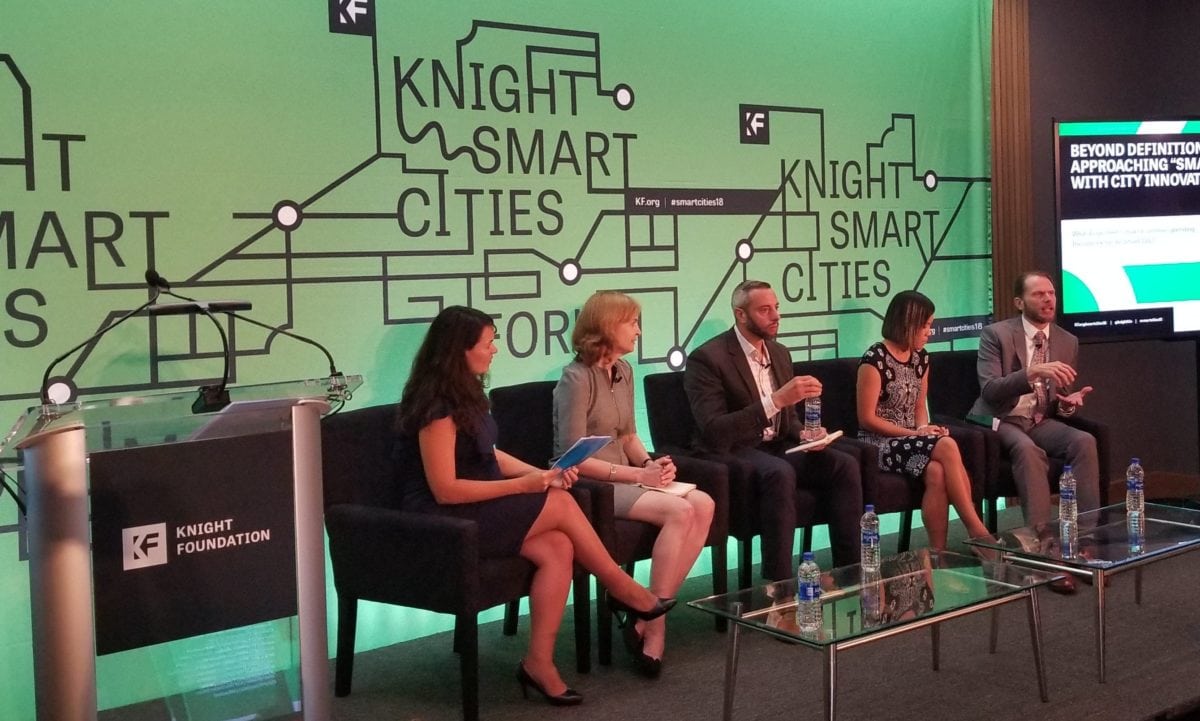
This editorial article is a part of What Local Means Now Month of Technical.ly's 2022 editorial calendar.
PhillyCoin?
The City of Miami recently began dabbling in CityCoin, a nonprofit and open-source protocol for trading cryptocurrency that’s netted the city almost $25 million. City of Philadelphia Chief Information Officer Mark Wheeler thinks Philly could someday join in.
If you’re among the naysayers — such as Philly’s first-ever chief data officer — who think it’s bonkers for any city government to align its financial future with what could be a “gimmick,” if not something downright exclusionary, read on for why this civic leader thinks it’s at least worth exploring.
CityCoins, which includes MiamiCoin, NewYorkCityCoin and soon AustinCoin, is a form of cryptocurrency that’s powered by the Stacks protocol. It offers a way for people to support their city while engaging with this form of cryptocurrency, Wheeler told Technical.ly. CityCoin users run the software on their own personal computers, mint new tokens, and earn a percentage of the crypto they mine. But 30% of mined currency automatically goes to a “city wallet” for a participating city, and the remaining 70% goes to chosen miners, per CityCoin’s guidelines.
The CityCoins program isn’t geared toward the everyday Philadelphian, Wheeler said, and it’s not exactly a fundraising method or GoFundMe equivalent. It’s a way for folks who are interested in crypto and blockchain to participate and interact with this nonprofit that sets cities up to receive 30% of earnings.
Wheeler said he’s been aware of blockchain technologies and on-the-rise cryptocurrencies for a couple of years now, but he recently learned about Miami’s trial with CityCoins, and it sparked some consideration. He stressed that the department is in very early days of investigating CityCoins, and is mostly using it as an opportunity to think broadly about what Philadelphia’s economic future could look like if it adapted technologies such as this.
This is a green light to say, these are conversations our city should start having.
“This is not a done deal or imminent,” Wheeler said. “We’ve just decided to entertain the question.”
There is an altruistic bent to CityCoins, unlike most other forms of crypto, as its expressed purpose is to supply funds to city governments. The money that goes into a city wallet can be used in the way philanthropic donations or grants could be, Wheeler said. It could be an answer to how to get funds to programs after their initial slated funding is gone.
Some programs the CIO thinks could benefit from CityCoin funds are in digital equity and housing — PHLConnectED, PHLDonateTech, the Digital Literacy Alliance and the Philadelphia Housing Authority’s rental assistance program, as well as arts programs that have lost funding in recent years. Because how much is raised is dependent on who participates, they couldn’t rely on a set amount. But there’s lots to consider before joining in, Wheeler said.
“How do we treat this from a policy perspective? Legally? And making sure we’re understanding what footing we’d be on if we were to do something?” he said.
Another program that’s intriguing to Wheeler is San Jose’s blockchain-based economic model to bring Internet of Things infrastructure to its citizens. Philly is already using IoT devices in some of its SmartCityPHL pilots, the CIO pointed out.
Between CityCoins pilots in US cities and other IoT projects gaining traction across the county, Wheeler said it’s time to think about how Philadelphia could participate in the technologies that will shape the future. There’s no direct timeline, though Mayor Jim Kenney last week gave the OK for the City to explore its options.
So, it’s safe to say it’s too soon to plan for city budget changes.
“This is not the City saying to residents, we want you to start buying crypto. We’re recognizing there’s changes in the landscape, technically and socially, that crypto is gaining some greater adoption, and it’s just time for us to start thinking about what that means,” Wheeler said. “It’s a green light to say, these are conversations our city should start having.”
@mineCityCoins – Philly is ready. 🟢to proceed.
— Mark Wheeler markaroo.btc (@Wheelmrk) January 30, 2022
Join the conversation!
Find news, events, jobs and people who share your interests on Technical.ly's open community Slack

Philly daily roundup: Women's health startup wins pitch; $204M for internet access; 'GamingWalls' for sports venues

Philly daily roundup: East Market coworking; Temple's $2.5M engineering donation; WITS spring summit

Philly daily roundup: Jason Bannon leaves Ben Franklin; $26M for narcolepsy treatment; Philly Tech Calendar turns one


